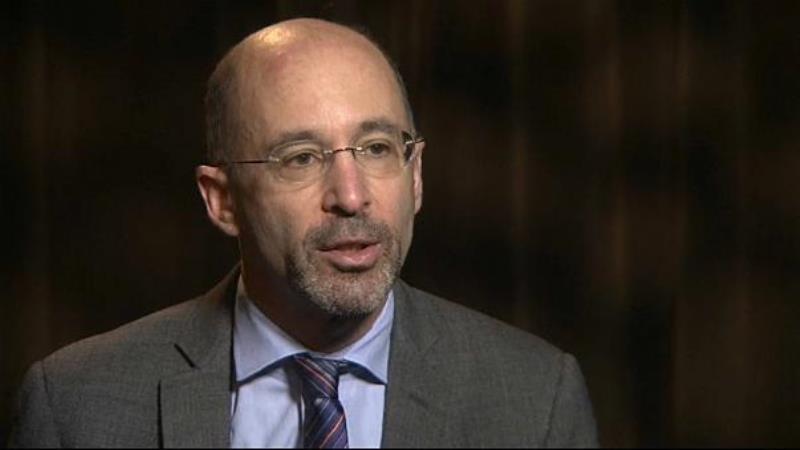
Robert Malley made the remarks in an exclusive interview with the Islamic Republic News Agency (IRNA).
Commenting on US Secretary of State Mike Pompeo 12 conditions proposed to Iran before making any new deal with Tehran, Malley said “It’s often hard to decipher a strategy behind what the Trump administration does, but in this case the logic seems relatively clear. The administration in all likelihood knows full well that these demands are unrealistic, but the goal is not to see them implemented. Rather, the pressure itself is the objective and – from the administration’s perspective, -- virtually any outcome is better than the status quo.”
“At a minimum, the economic, diplomatic and other forms of pressure will reduce Iran’s resources. Better yet, it could (in their view) force Iran to reduce what it spends on its foreign activities. Better still, it could result in domestic discontent,” he added.
“And, optimally (again, from their vantage point) it could trigger regime change. Trump himself might also think that, as he believes is the case with North Korea, a campaign of maximum pressure can get Iran to agree to renegotiate a “better” deal. But most in his inner circle seem driven primarily by the desire to punish the Iranian economy and see what happens, he reiterated.
In response to a question regarding the influence of Israeli Prime Minister Benjamin Netanyahu and Saudi Crown Prince Bin Salman on Trump’s anti-JCPOA decision, Malley said “President Trump’s disdain for the JCPOA has never been much of a secret – during his campaign he vowed to tear it up, and he is in any event driven by the obsession of undoing all his predecessor did.”
“As we saw with his clear dismissal of European complaints, President Trump will not hesitate to ignore his allies’ requests if he wishes to go in another direction. That said, if the fact that U.S. regional allies strongly supported his withdrawal thus didn’t drive his decision, it certainly contributed to it,” he noted.
“There’s no doubt that sanctions are far more effective if applied multilaterally. But it’s also true that even done unilaterally, U.S. sanctions are extremely powerful,” he said answering a question whether Pompeo would be able to create sanction coalition against Iran.
“Major international companies often have a foot in the U.S. market, and they can’t afford the risk of being barred from it or penalized. So the end result is mixed. On the one hand, major companies will refrain from dealing with Iran, Iran will find it harder to deal with foreign banks and, therefore, it will not receive the benefits to which it is entitled by virtue of the JCPOA,” he added.
Elsewhere in his remarks, Malley referred to other signatories attempts to preserve the deal with Iran, he said “On the other hand, given that Europe, Russia, China and India all have indicated that they will seek to resist the imposition of U.S. extraterritorial sanctions, then – as long as Iran complies with its JCPOA nuclear commitments -- it is hard to imagine that these new sanctions will bite as much as those that were in place in the 2010-2012 period. Of course, if Iran were to respond to America’s violating the JCPOA by itself violating it, then virtually all foreign countries (and especially Europe) are likely to feel compelled to side with Washington.'
Answering a question whether Trumps is making US isolated than Iran, Malley said “No doubt, and that’s been made even clearer with his decision to impose trade tariffs on the U.S.’s closest allies. There’s no question that the withdrawal from the JCPOA, following a long line of decisions that run contrary to Europe’s interests – withdrawing from the climate accord, from the trans pacific trade deal, moving the US embassy to Jerusalem, and imposing steel and aluminum tariffs – have all seriously damaged the transatlantic relationship.”
Malley went on to say that “the EU has been clear and united in its efforts to save the JCPOA, frankly more than I had expected. But we have to be honest: There’s no quick or clean solution. Governments simply cannot dictate to private companies about what they should do, and private companies are terrified at the prospect of alienating the U.S.”
“But in Brussels and across European capitals, there’s undoubtedly a willingness to think creatively about ways to protect trade with Tehran as long as Iran complies with JCPOA. For example, they’ve already announced that they are revising blocking statutes to give cover to European companies against U.S. sanctions, and are looking at inventive ways to provide loans and credit for businesses,” he added.
He reiterated the fact that they also are seeing how they can strengthen diplomatic engagement with Iran. There may be more that they can do. One should be realistic about how far they can go, but if Iran complies with its nuclear commitments, I would expect Europe to make a genuine effort to reciprocate.”
9376**1396
Follow us on Twitter @IrnaEnglish
 solhkhabar | Peace International News Agency Peace International News Agency , Peace News , International Agency News of Peace
solhkhabar | Peace International News Agency Peace International News Agency , Peace News , International Agency News of Peace